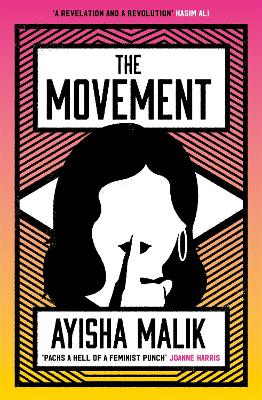The Movement

As seen:
By Ayisha Malik
avg rating
2 reviews
From the acclaimed author of Sofia Khan is Not Obliged comes a sharply observed novel, charged with compassion and dark wit, that will spark important conversations about how we live, relate and communicate now.
TweetReviews
This was a really unusual and interesting plot. The book had written in ‘modern day speak’, which made it feel current. The dystopian society scenario fired up my imagination, and I really wanted to know how it all resolved. However, the characters were less well developed, to the extent where I felt little connection with any of them.
There's a lot to like about this book. The concept-- a world where nearly half of society decides to become "Non-Verbal" and simply stop speaking-- is fascinating, and the bitty nature of the story, with multiple narratives and excerpts from interviews and newspapers, allows for a more nuanced exploration of how this change would impact society. I liked most of the characters, even as I found them frustrating at times, and I appreciated how race was a significant (but not the sole) factor in the novel. Malik writes well and her story kept me engrossed.
The downside, as other reviewers have noticed, is that there is so much extra stuff here, so many newspaper clips talking about the prime minister, too much about votes and elections, too many characters, that at times we do lose the our connection to the main characters. It doesn't help that the main character is Non-Verbal from the start, so obviously any sort of conversation with her is impossible, except in flashbacks. When the character moments do come, particularly the relationship between Sara and Roxy, Malik handles their interaction with an impressive understanding of love and hurt, but the novel as a whole fails to sustain these emotions because it spends so much time away from its main characters.
That, in itself, wouldn’t necessarily be a problem if the political discussions were a little more thought-through. The central premise of the novel-- that millions of people would voluntarily choose to be silent and manage to actually stick with it for longer than a few hours-- requires significant suspension of disbelief. Similarly, much of the political response is overblown, with all the world leaders making speeches simultaneously about how they're going to deal with this new phenomenon. If covid has taught us anything, it's that there's no way the world would come up with a unified response to anything like this! These, any other similar elements, meant that I spent the majority of the novel thinking, "that would never happen" rather than "that's so true."
(and a very small, irrelevant point… in the acknowledgements, Malik thanks a friend for helping her with the ins and outs of the UK immigration system, yet, as someone who's recently gone through that system, her depiction of the immigration process seemed vague and inaccurate. I was never sure exactly where in the process Zainab was; she mentions getting her citizenship, but to be applying for citizenship she'd already have Indefinite Leave to Remain, in which case she wouldn't be in danger of being deported. So I can only assume she's in the process of applying for Indefinite Leave to Remain, in which case I don't understand why they keep referring to it as citizenship or naturalisation. Not a big deal, but for a novel that's trying to be realistic about our political/judicial system, it seems like a missed opportunity for detail.)
Overall, I realise this review is quite a negative one for a four-star book. I think my frustration is that there's so much good stuff here, and Malik is so obviously a talented writer, that I just feel the novel could have been better. A little more focus on the characters' storylines, a little more believability in the political landscape, and this would have been a really powerful novel. As is, though, it's still a solid, thought-provoking read.






